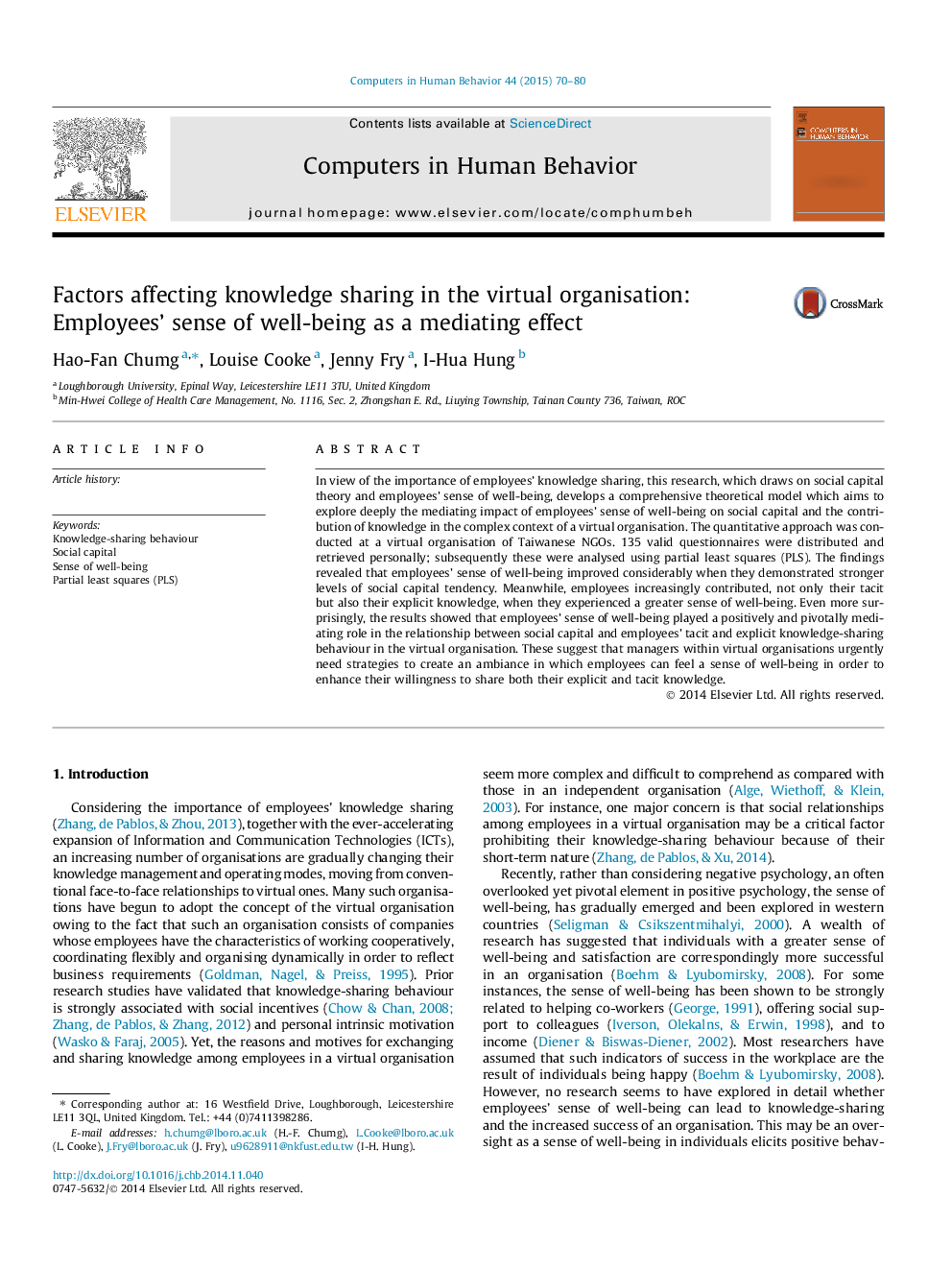| Article ID | Journal | Published Year | Pages | File Type |
|---|---|---|---|---|
| 6838550 | Computers in Human Behavior | 2015 | 11 Pages |
Abstract
In view of the importance of employees' knowledge sharing, this research, which draws on social capital theory and employees' sense of well-being, develops a comprehensive theoretical model which aims to explore deeply the mediating impact of employees' sense of well-being on social capital and the contribution of knowledge in the complex context of a virtual organisation. The quantitative approach was conducted at a virtual organisation of Taiwanese NGOs. 135 valid questionnaires were distributed and retrieved personally; subsequently these were analysed using partial least squares (PLS). The findings revealed that employees' sense of well-being improved considerably when they demonstrated stronger levels of social capital tendency. Meanwhile, employees increasingly contributed, not only their tacit but also their explicit knowledge, when they experienced a greater sense of well-being. Even more surprisingly, the results showed that employees' sense of well-being played a positively and pivotally mediating role in the relationship between social capital and employees' tacit and explicit knowledge-sharing behaviour in the virtual organisation. These suggest that managers within virtual organisations urgently need strategies to create an ambiance in which employees can feel a sense of well-being in order to enhance their willingness to share both their explicit and tacit knowledge.
Related Topics
Physical Sciences and Engineering
Computer Science
Computer Science Applications
Authors
Hao-Fan Chumg, Louise Cooke, Jenny Fry, I-Hua Hung,
